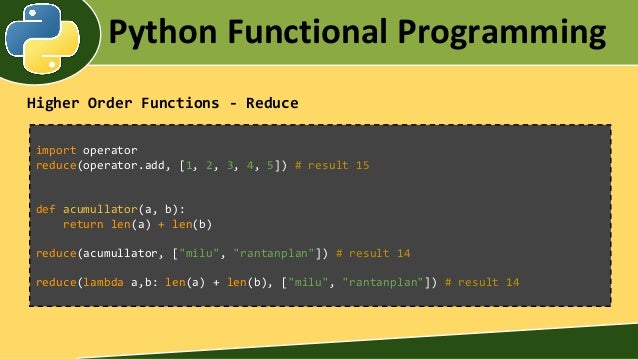
Make an iterator that returns selected elements from the iterable. If predicate is None, return the itemsĭef imap ( function, * iterables ): # imap(pow, (2,3,10), (5,2,3)) -> 32 9 1000 iterables = map ( iter, iterables ) while True : args = if function is None : yield tuple ( args ) else : yield function ( * args ) itertools. Make an iterator that filters elements from iterable returning only those for tgtkey )) def _grouper ( self, tgtkey ): while self. currvalue = object () def _iter_ ( self ): return self def next ( self ): while self. Is needed later, it should be stored as a list:Ĭlass groupby ( object ): # -> A B C D A B # -> AAAA BBB CC D def _init_ ( self, iterable, key = None ): if key is None : key = lambda x : x self. Object is advanced, the previous group is no longer visible. Because the source is shared, when the groupby() The returned group is itself an iterator that shares the underlying iterable That behavior differs from SQL’s GROUP BY which aggregates commonĮlements regardless of their input order. (which is why it is usually necessary to have sorted the data using the same keyįunction). Generates a break or new group every time the value of the key function changes The operation of groupby() is similar to the uniq filter in Unix. Generally, the iterable needs to already be sorted on Specified or is None, key defaults to an identity function and returns The key is a function computing a key value for each element.

Make an iterator that returns consecutive keys and groups from the iterable. R-length tuples, in sorted order, no repeated elementsĭef dropwhile ( predicate, iterable ): # dropwhile(lambda x: x 6 4 1 iterable = iter ( iterable ) for x in iterable : if not predicate ( x ): yield x break for x in iterable : yield x itertools. R-length tuples, all possible orderings, no repeated elements Izip_longest('ABCD', 'xy', fillvalue='-') -> Ax By C- D-Ĭartesian product, equivalent to a nested for-loop Ifilter(lambda x: x%2, range(10)) -> 1 3 5 7 9Įlements of seq where pred(elem) is False Sub-iterators grouped by value of keyfunc(v) Iterators terminating on the shortest input sequence: Iterator Sum(imap(operator.mul, vector1, vector2)).Įlem, elem, elem. Operator can be mapped across two vectors to form an efficient dot-product: These tools and their built-in counterparts also work well with the high-speedįunctions in the operator module. The same effect can be achieved in Pythonīy combining imap() and count() to form imap(f, count()). Together, they form an “iteratorĪlgebra” making it possible to construct specialized tools succinctly andįor instance, SML provides a tabulation tool: tabulate(f) which produces a The module standardizes a core set of fast, memory efficient tools that are This module implements a number of iterator building blocks inspiredīy constructs from APL, Haskell, and SML. itertools - Functions creating iterators for efficient looping ¶ That is, the first time after the condition is false, the remaining items in the iterator are returned. : for item in itertools.starmap(lambda x,y:(x, y, x*y), seq):Ĥ * 9 = 36 2.4 itertools.dropwhile dropwhile(predicate, iterable)Ĭreate an iterator that, as long as the function predicate(item) is True, discards the items in the iterable, and if predicate returns False, generates the items in the iterable and all subsequent items. This function is only valid if the iterable generated items are applicable to this way of calling the function. ('d', '-') 2.3 itertools.starmap starmap(function, sequence)Įxecute each element of the sequence as a list of arguments to function, that is, function(*item), returning the iterator that executes the result. : for item in itertools.izip_longest('abcd', '12', fillvalue='-'): Similar to zip, but different is that it will finish the longest iter iteration before ending, and fillvalue will be used to fill in other iter if there is any missing value. : for elem in itertools.ifilterfalse(lambda x: x > 5, ):ĥ 2.2 itertools.izip_longest izip_longest(iter1 ], ) Similar to filter, only items in the sequence where function(item) is False are generated. In python3 is: filterfalse(function or None, sequence) 2.1 itertools.ifilterfalse ifilterfalse(function or None, sequence)

They has been removed in Python3 because the default built-in function return an iterator instead of sequence. It has the same functionality as the built-in functions filter(), reduce(), map(), and zip(), except that it returns an iterator rather than a sequence. Itertools.ifilter、itertools.reduce、itertools.imap、itertools.izip. Repeat(object ) : for x in itertools.repeat("hello world", 5):


 0 kommentar(er)
0 kommentar(er)
